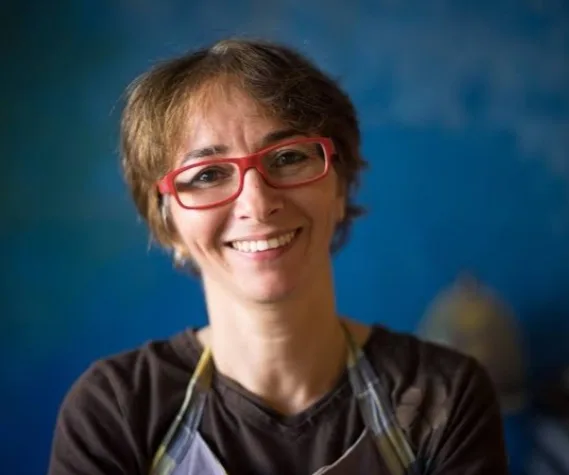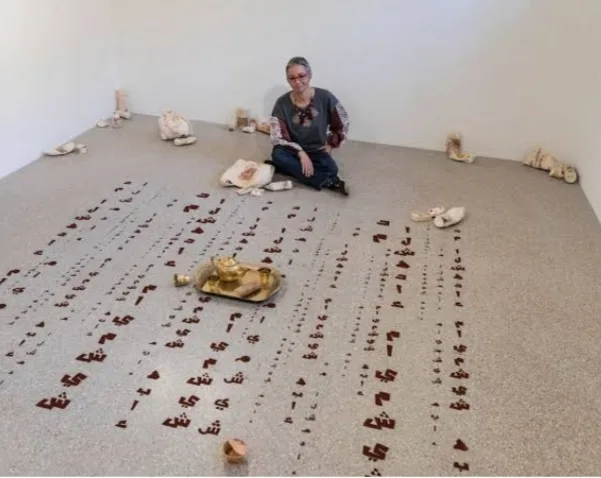Hadia Gana was born in Tripoli, Libya in 1973. She studied ceramics and glass making at the School of Fine Arts and Media at the University of Tripoli. She then pursued a Master’s in Ceramics at the University of Wales, Cardiff in 2005. Gana identifies as a ceramist and installation artist and has favored the latter since the completion of her Master’s at Cardiff. She currently lives and works in Paris, France.
Hadia Gana, Libya

In contemplation of the 17 February Revolution in Libya, Gana created an installation piece that she named Zarda. The word zarda is used to describe both a picnic and a chaotic situation. Gana jumped on this double meaning to comment on the chaotic socio-political realities in Libya. The installation shows a space around a trail filled with a teapot, cups, stenciled letters, and scattered ceramic garbage as if discarded by an absent party. The teapot and cuttlery shows a state of picnic, which accounts for one part of the word and title Zarda.
The discarded garbage refers to the disruptive part of the word. Also, the garbage being left by an ‘unknown party’ speaks to the lack of accountability by political officials and citizens for the atrocities a nation experiences. When looked at closely the installation reveals a message saying “The blood of the martyrs will not go in vain,” which references a famous slogan from the Libyan revolution, while the ceramic pieces are branded with the names and images of those who died during this time. Gana participated at the Noon Arts’ first exhibition titled The Libyan at the Arab British Centre, London where Zarda received great acclaim.

She has taught art at various levels ranging from primary school to higher education in Libya. In 2010, she was awarded an Arts Residency at the Thami Mnyele Foundation in Amsterdam. In 2015, Gana also took up a residency with the Ashkal Alwan programme in Beirut. She has also done the Le 18 Residency in Marrakesh, and the Sacatar Residency in Brazil. For her furniture designing and pottery she has participated in the design of the Libyan Pavilion at the 2010 Shanghai Exposition.

Gana’s work has been exhibited at a group exhibition at Arab British Centre, London, England; in the Museum of Immortality in Beirut, Lebanon; and at the United Nations Educational, Scientific and Cultural Organization in Paris, France. Other countries where her work has been exhibited include Libya, Malta, and the Netherlands. She is included in the Imago Mundi Collection Libya: Hurriya. She is currently working on the opening of the Ali Gana Foundation in Tripoli, in memory of her late father.


